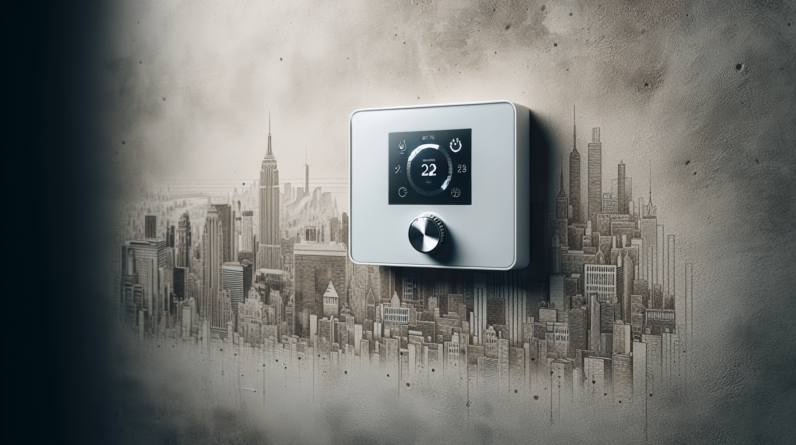
Have you ever wondered what you should do when your circuit breaker trips more often than it should? We’ve all been there — the lights flicker, the power goes out, and you’re left scrambling to reset everything. It can be frustrating, especially when it feels like a regular occurrence. Understanding circuit breaker replacements in New York City can save you time, money, and a lot of hassle in the long run.
Understanding Circuit Breakers
Circuit breakers are essential components of your electrical system. They protect your home from overloading and electrical surges, which could lead to fires or serious damage. Knowing how these devices work can help you make informed decisions about replacements and repairs.
What Does a Circuit Breaker Do?
When there’s an overload or a short circuit, your circuit breaker interrupts the electrical flow to prevent damage. Think of it as a safety valve for your electrical system. Instead of your wiring or devices catching fire from too much current, the breaker cuts off the electricity to that circuit.
Signs You Need a Replacement
How do you know when it’s time to replace your circuit breaker? There are several signs that can indicate issues:
- Frequent Tripping: If your breaker trips regularly, it could be underpowered or defective.
- Burning Smell: A burning smell or scorch marks around the breaker are serious signs that should never be ignored.
- Flickering Lights: If your lights flicker when you run multiple appliances, it might indicate a wiring issue or a failing breaker.
- Old Age: Circuit breakers do have a lifespan, often around 30-40 years. If yours is approaching this age, it may be time for a replacement.
Choosing the Right Circuit Breaker
Once you’ve established that a replacement is necessary, the next step is selecting the right circuit breaker for your needs. It can feel overwhelming, but don’t worry — we’ll break it down.
Types of Circuit Breakers
There are a few different types of circuit breakers, and understanding them can help you choose the right one for your home:
| Breaker Type | Description |
|---|---|
| Standard Breaker | Commonly used for general household circuits (15/20 amps). |
| GFCI Breaker | Ground Fault Circuit Interrupter, used in areas where water is present (bathrooms, kitchens). |
| AFCI Breaker | Arc Fault Circuit Interrupter, designed to prevent fires caused by arc faults. |
| Dual Function Breaker | Combines GFCI and AFCI functions for increased safety. |
Amperage Rating
Circuit breakers come in various amperage ratings. The typical ratings for home use are 15, 20, and 30 amps. When replacing, it’s crucial to match the amperage to your circuit requirements.
- 15 Amps: Usually for lighting circuits.
- 20 Amps: Commonly used for outlets.
- 30 Amps: Typically for larger appliances (like HVAC units).

DIY vs. Professional Replacement
You may be wondering whether you can replace a circuit breaker yourself or if you should call in a professional. While it might seem straightforward to swap out a breaker, there are risks and regulations involved.
DIY Replacement
If you have some electrical knowledge and experience, you may be able to replace the breaker yourself. Here are some basic steps involved in a DIY replacement:
- Turn Off the Main Power: Safety first! Ensure that the main power is off before you start working.
- Remove the Panel Cover: You will need to access the circuit breaker panel.
- Identify and Remove the Old Breaker: Unscrew the panel and pull the old breaker out.
- Install the New Breaker: Insert the new breaker and secure it in place.
- Replace the Panel Cover: Once everything is secure, put the panel cover back on.
- Turn On the Power: Flip the main power back on to test the new breaker.
Professional Replacement
If you’re unsure or uncomfortable with electrical work, it’s always best to call a qualified electrician. Here are some reasons why professional help can be beneficial:
- Safety: Professionals know how to safely handle electrical systems, reducing the risk of accidents or injury.
- Expertise: Electricians can diagnose any underlying issues that may have caused the breaker to fail.
- Code Compliance: A professional ensures that all work meets local building codes and regulations, protecting your home in the long run.
Finding the Right Electrician in New York City
When deciding to hire a professional, finding the right electrician is crucial. Here are tips to help you make the best choice for your circuit breaker replacement:
Credentials and Experience
Always check that your electrician is licensed and insured. Ask about their experience with circuit breaker replacements specifically, as this shows they have the right knowledge and skills for the job.
Ask for Referrals
Talk to friends, family, or neighbors who have had similar work done. Personal recommendations can lead you to trustworthy and efficient professionals.
Customer Reviews
Look for reviews online for electricians or electrical companies. Websites like Yelp, Angie’s List, and Google Reviews offer insights into others’ experiences and can help you narrow down your choices.

Cost of Circuit Breaker Replacement
Understanding the costs involved can help you budget effectively for your circuit breaker replacement. Here’s a breakdown of various factors that can affect the total price:
Average Costs
- DIY Replacement: If you opt to do it yourself, the cost for a standard breaker typically ranges from $5 to $30, depending on the type and amperage.
- Professional Replacement: If you choose to hire an electrician, expect the total cost to range between $150 to $300 or more. This includes the price of the breaker and labor.
Factors Affecting Cost
- Type of Breaker: Special breakers like AFCI or GFCI tend to be more expensive.
- Accessibility: If the panel is in a difficult location, labor costs may increase.
- Code Updates: If your electrical system doesn’t meet current safety codes, additional work may be needed, increasing costs.
- Emergency Services: If you need immediate help outside of regular business hours, be prepared for higher rates.
Circuit Breaker Maintenance
After getting a new circuit breaker, you might be wondering how to keep it in optimal condition. Regular maintenance can extend the life of your circuit breaker and your electrical equipment.
Regular Inspections
It’s wise to have your electrical system inspected every few years by a qualified electrician. This can catch potential problems before they become larger issues.
Avoid Overloading Circuits
Take care not to overload your circuits by plugging too many devices into a single outlet or circuit. Using power strips responsibly and not exceeding the recommended wattage can help prevent tripping.
Keep the Panel Accessible
Ensure that your circuit breaker panel is easily accessible. In case of an emergency, a clear path to the panel makes resetting breakers simpler and safer.
Emergency Situations
Sometimes, you may experience issues that require immediate attention. Knowing how to handle electrical emergencies can be critical.
When to Call for Help
If you experience any of the following situations, it’s time to call a professional:
- Burning Smell: If you notice a burning smell coming from the panel.
- Constant Tripping: If the breaker trips regardless of what you unplug or reset.
- Physical Damage: Any visible damage to wiring or the panel itself is a sign to seek help.
Steps to Take in Emergencies
- Turn Off Power: If you suspect something is wrong, switch off the main power immediately.
- Stay Safe: Avoid using water or putting yourself in danger while trying to handle electrical issues.
- Call for Help: Reach out to a licensed electrician right away to assess the situation.
Conclusion
Understanding the ins and outs of circuit breaker replacement in New York City can empower you as a homeowner. From recognizing signs that it’s time to replace your breaker to knowing how to choose the right professional for the job, being informed makes all the difference. Taking these steps ensures safety for you and your loved ones while keeping your electrical system running smoothly.
If you find yourself unsure or facing frequent electrical problems, don’t hesitate to reach out for assistance. The right electrician can make a world of difference in your home’s electrical safety and functionality. By keeping your circuit breaker in good shape, you’re not just protecting your home; you’re also ensuring peace of mind for years to come.








